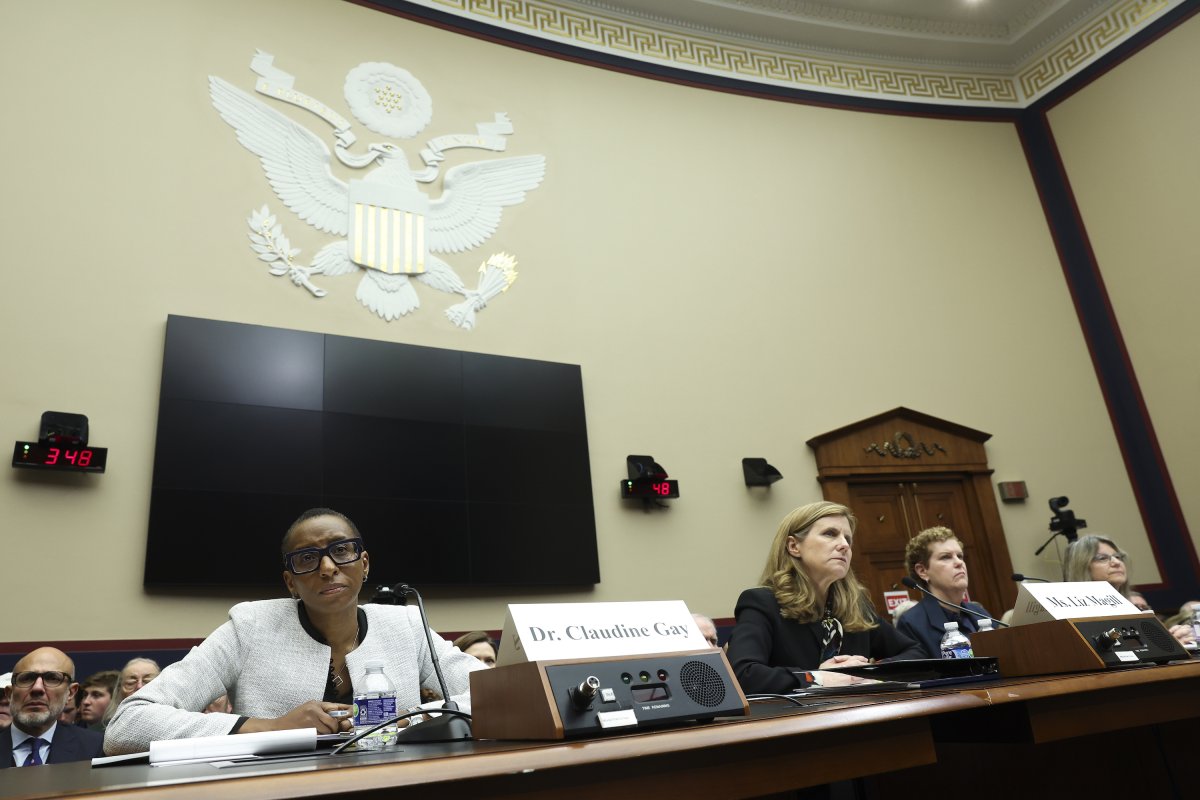Representative Elise Stefanik (R-N.Y.) grilled the presidents of three top universities at a congressional hearing last week. She demanded they say whether their schools' rules against harassment ban "calling for the genocide of Jews." They replied, accurately, that only harassment, which is conduct, violates those rules, and that speech alone does not—unless there is something that turns that speech from a mere vessel for a viewpoint into actual harassment.
All hell broke loose when a liberal billionaire, Bill Ackman, posted video of the exchange on X and demanded the presidents resign.
Hordes of Republicans went from demanding that schools apply their speech policies equally and protect disfavored views to demanding that they change their policies to police disfavored views. Not once did any of them think of who they were demanding police those views: leftist campus bureaucrats in the Diversity, Equity, and Inclusion complex. Republicans are now asking the very people they abjured for calling Israel's campaign in the Gaza Strip a genocide to rule on suspected calls for genocide—and punish them.
Those Republicans—and all the conservatives foolishly cheering them on, many of whose public jeremiads have been the most banned and censored views of all—need a remedial lesson in why free speech is important and why they should care.
Let's begin by dispensing with one shallow but popular objection. Yes, the First Amendment applies to government. But that does not mean only the government should adhere to it. The First Amendment is a value, not a loophole. The Constitution's due-process guarantees similarly apply to government; but due process, like free speech, is a value, so we demand that your school, your employer, and even your cable company adhere to it by applying rules to you fairly. So, too, do we demand that schools adhere to the most fundamental American value of all: free speech.
The issue is not what private schools can do. It's what they should do.
The most essential command of free speech is this: you can have any viewpoint you want. Any. "Under the First Amendment," said Alan Dershowitz after the hearing, "you can say 'we think that the Jews of Palestine should be exterminated.' That's protected speech."

Dershowitz—a brilliant lawyer and an effective advocate for Israel—of course acknowledged that there may be rules on how one can express a viewpoint. And, those rules may be stricter on campuses than elsewhere. Personal insults during a class debate, for example, may be banned—even though they are allowed in a debate on the street.
But the essential difference between a speech rule that accords with the value of free speech and one that does not is whether the penalty imposed by the rule is for the viewpoint that is expressed in the speech. Even a placid view on how capital-depreciation tax credits should be calculated on corporate returns may not be screamed in the face of a classmate at lunchtime. But even vile, racist views may be written in a book and placed on a college-library bookshelf.
The reasons for the right to express any viewpoint—a natural right, given by God—are well understood yet too easily forgotten. Consider just three. First, our most essential right—and, indeed, our most essential purpose—is to think about what is good. That's our conscience. But one cannot have a right to conscience without also having a right to say what he thinks because his conscience will tell him that he must tell others what he thinks is right. That's the nature of conscience.
Second, censorship hurts the censored. It hardens one's mind, making him see his censors as enemies and preventing the debates by which his mind can be changed.
Third, censorship hurts the censors. Though one has a right to his own conscience, he must not rely on it alone. He is fallible. The way one knows to change is when he shoulders his way into the public arena, argues, and loses. Then, if he's wise, he reconsiders his views. But censors on the Left are none the wiser to their wrongs, because instead of arguing, they silence. Instead of meeting their opponents in the arena confidently with speech, they run from the arena, angry and afraid and begging others to retaliate. The Right must not emulate the Left in its self-destructive cowardice.
Then there's the practical fact that no rule banning viewpoints can be fairly applied because no such rule can be precisely written. Any viewpoint ban will at the same time include too much and too little. "No calls for violence against Jews" will exclude calls for violence against Catholics. "No calls for violence" will include calls for just wars. On and on it will go until it hands an inevitably biased judge the discretion to decide which viewpoint is supposedly right. At universities today, such judges will rule against the very conservatives—those banned from social media for questioning elections and denouncing vaccines—who cheer Ackman and Stefanik's crusade against free speech.
America has upheld the right to free speech since her founding. It has served her well. It's her first right, from which she was born in revolution, and nothing has changed to discredit it. Republicans must wise up before it's too late and return to a simple and unyielding defense of free speech—everywhere and for everyone—before it's too late.
Sean Ross Callaghan is an attorney, a tech entrepreneur, and a onetime federal law clerk.
The views expressed in this article are the writer's own.
Uncommon Knowledge
Newsweek is committed to challenging conventional wisdom and finding connections in the search for common ground.
Newsweek is committed to challenging conventional wisdom and finding connections in the search for common ground.
About the writer
To read how Newsweek uses AI as a newsroom tool, Click here.








